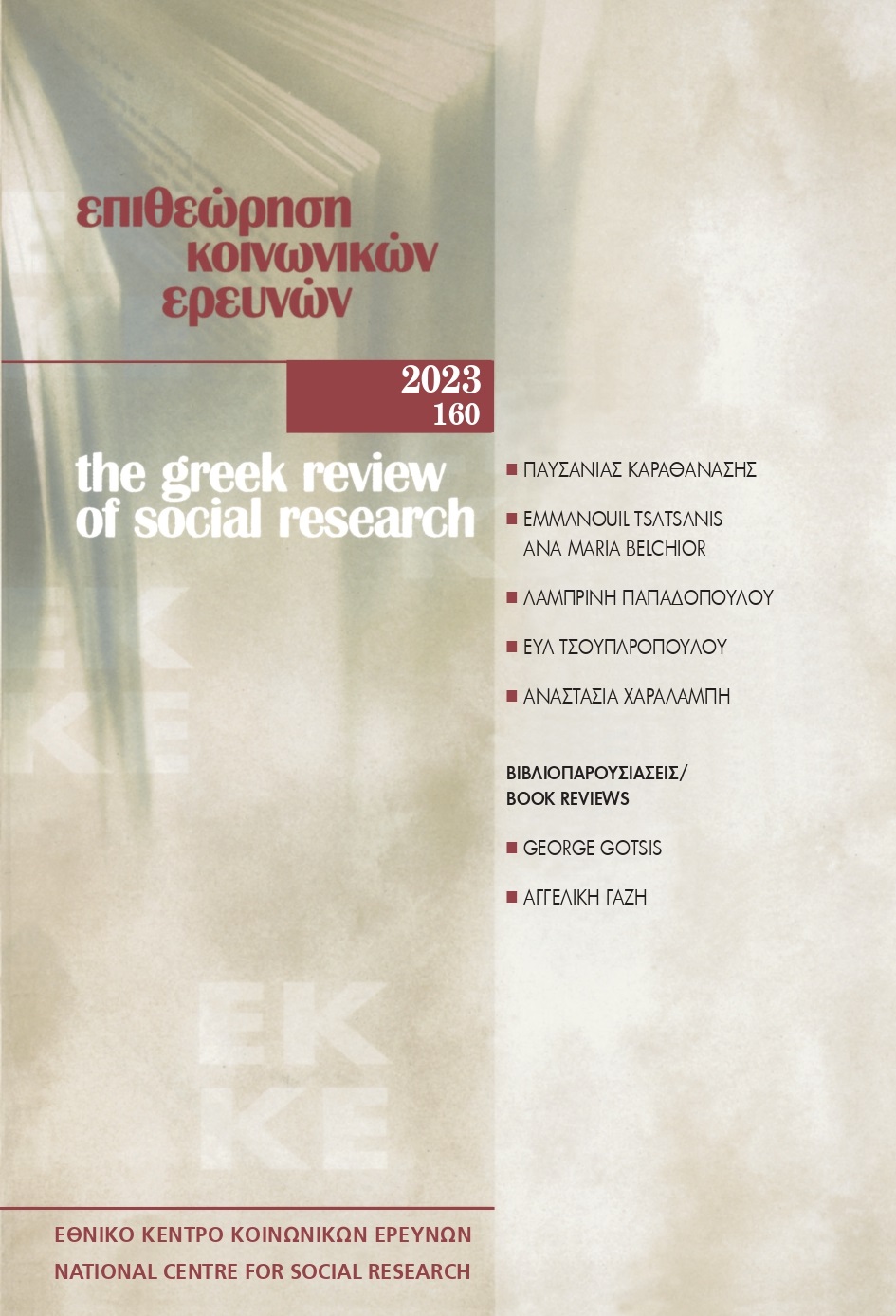Investigating the structure of Schwartz’s values scale: Evidence from the 2010 European Social Survey for Greece

Abstract
In order to approach the measurement of an attitude scale, the crucial question of its reliability and validity arises. The present study aims at investigating the theoretical structure and assessing the psychometric properties of the ten-dimensional Schwartz’s human values scale short form (PVQ-21). The investigation was based on the European Social Survey (ESS) Greek data of Round 5 (2010).
The analysis produced two reliable and valid subscales: Openness to change and Self-transcendence. The results did not confirm the dimensionality of the Schwartz Human Values Scale as proposed in the literature. However, a useful methodological tool is provided to social scientists.
Article Details
- How to Cite
-
Charalampi, A. (2023). Investigating the structure of Schwartz’s values scale: Evidence from the 2010 European Social Survey for Greece. The Greek Review of Social Research, 160, 143–167. https://doi.org/10.12681/grsr.33197
- Issue
- 2023: 160
- Section
- Articles

This work is licensed under a Creative Commons Attribution-NonCommercial 4.0 International License.
Authors who publish with this journal agree to the following terms:
- Authors retain copyright and grant the journal right of first publication with the work simultaneously licensed under a Creative Commons Attribution Non-Commercial License that allows others to share the work with an acknowledgement of the work's authorship and initial publication in this journal.
- Authors are able to enter into separate, additional contractual arrangements for the non-exclusive distribution of the journal's published version of the work (e.g. post it to an institutional repository or publish it in a book), with an acknowledgement of its initial publication in this journal.
- Authors are permitted and encouraged to post their work online (preferably in institutional repositories or on their website) prior to and during the submission process, as it can lead to productive exchanges, as well as earlier and greater citation of published work (See The Effect of Open Access).


